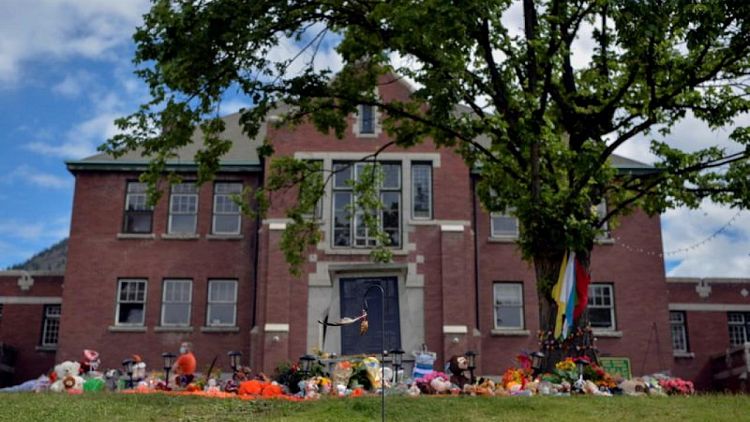By Philip Pullella
ROME - Canadians disappointed that Pope Francis did not apologise for the Catholic Church's role in a scandal surrounding a former school for indigenous students should give his message "a second chance" because his sorrow and shock are sincere, a Canadian cardinal said.
Michael Czerny, one of two Vatican-based Canadian cardinals, spoke in an interview with Reuters a day after the pope said he was pained by the discovery of the remains of 215 children at the former Indian Residential School in the town of Kamloops in the Western Canadian province of British Columbia.
In comments on Sunday, the pope stopped short of the direct apology some Canadians had demanded. On Friday Prime Minister Justin Trudeau said the Catholic Church must take responsibility for its role in running many of the schools.
"I really hope that they give Pope Francis' message a second chance because it says an awful lot and it expresses his feelings, his sorrow, his shock," Czerny said in a telephone interview.
"These are all very important in building bridges between him and the church and those who are suffering from this terrible revelation, the indigenous people and many other people in Canada," he said.
The discovery last month of the remains at the school, which closed in 1978, has reopened old wounds and is fuelling outrage in Canada about a lack of information and accountability..
In his comments on Sunday Francis urged Canadian political and Catholic religious leaders to "cooperate with determination" to shed light on the finding and to seek reconciliation and healing. He also denounced any residual colonialism attitudes and defended the rights and cultural values of native peoples.
After the pope spoke, some Canadian indigenous leaders and school survivors said they were disappointed and that the Church needed to do much more.
"Even though he doesn't say what they might have expected or wanted or hoped for, what he says is good and it would be great if it were received," said Czerny, the Vatican's expert on immigration and refugees.
Czerny, 74, called the pope's comments "intense and compact" and he hoped "people can receive, not just the words but the inner meaning, the human meaning, the spiritual meaning".
The residential schools operated between 1831 and 1996 and were run by a number of Christian denominations on behalf of the government. Most were run by the Catholic Church.
The system forcibly separated about 150,000 children from their homes. Many were subjected to abuse, rape and malnutrition in what the Truth and Reconciliation Commission in 2015 called "cultural genocide".
Francis was elected pope 17 years after the last schools were closed and has already apologised for the Church's role in colonialism in the Americas.
But he has mostly chosen to make direct apologies while visiting countries and talking to native peoples.
Visiting Bolivia in 2015, Francis apologised for the "many grave sins (that) were committed against the native people of America in the name of God".
No papal visit to Canada is scheduled.


